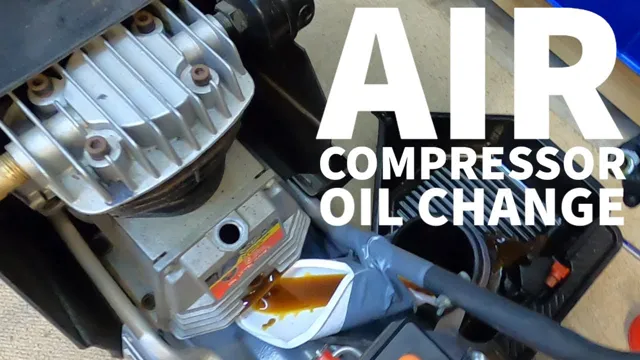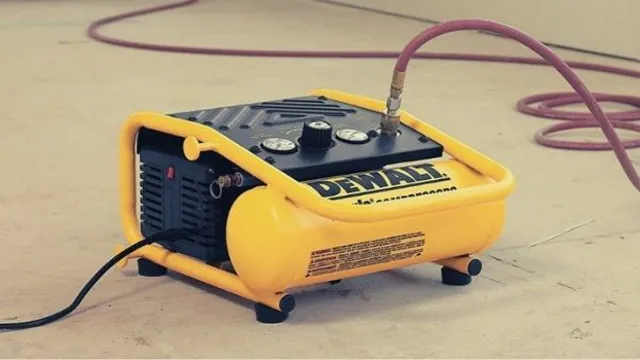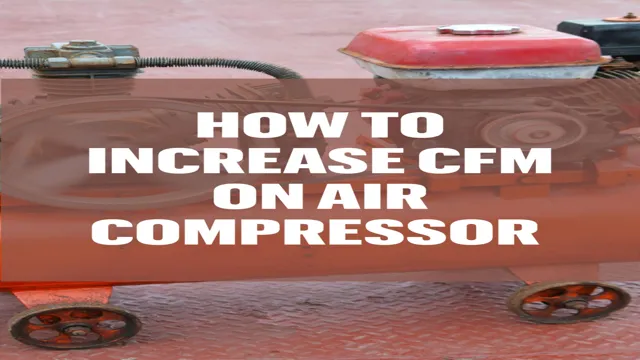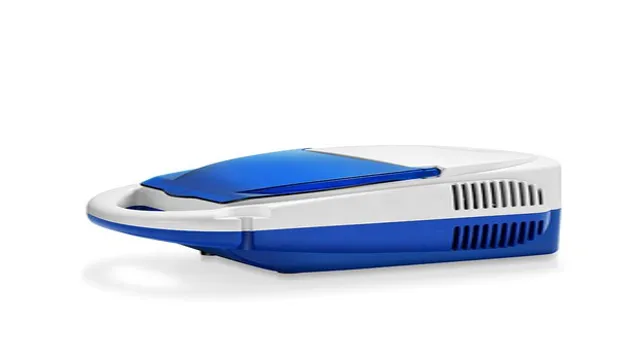
If you rely on a nebulizer to manage your respiratory conditions, then you likely know the importance of maintaining the device’s various components to ensure optimal performance. One of the most critical components of a nebulizer is the air compressor, which provides the air pressure necessary to aerosolize liquid medication for inhalation through a mask or mouthpiece. Over time, however, air compressors can wear out or become damaged, compromising their ability to deliver the required air pressure.
This begs the question of When to Replace Your Nebulizer Air Compressor? In this blog, we’ll explore the telltale signs that your nebulizer air compressor may be due for a replacement, and offer some tips for keeping your nebulizer in top working condition. So if you want to ensure that your nebulizer is delivering the optimal dose of medication to your lungs, read on!
Nebulizer Air Compressor Lifespan
If you rely on a nebulizer to manage respiratory conditions such as asthma or COPD, it’s essential to keep the air compressor in good working order. Typically, a nebulizer air compressor will last between 3 to 5 years, depending on how often it’s used and how well it’s maintained. However, some models may last as much as 10 years.
It’s important to keep an eye on the performance of your nebulizer and compressor to determine when it’s time for a replacement. Noticeable issues such as increased noise, decreased output, and reduced efficiency are indicators it’s time to replace your nebulizer air compressor. During the lifespan of your nebulizer air compressor, proper cleaning and maintenance will increase its longevity.
Regularly clean the air filter and replace it every 6 months to improve airflow and protect internal components. Also, regularly check the tubing, mask, and medicine cup for cracks, tears, and discoloration, and replace it immediately if any issues are detected. By prioritizing proper maintenance and timely replacement of parts, you’ll continue to enjoy effective respiratory management with a nebulizer compressor that can last for many years.
Understanding the Average Lifespan
When it comes to the lifespan of a nebulizer air compressor, there are a few factors to take into consideration. First, it’s important to understand the average lifespan of these devices. Generally, nebulizer air compressors can last anywhere from 3-5 years with proper maintenance and care.
However, this lifespan can depend on various variables such as frequency of use and the environment in which the device is stored. Regular cleaning and maintenance can also extend the lifespan of a nebulizer air compressor, ensuring it runs smoothly and efficiently for years to come. Think of it like maintaining a car – with regular oil changes and tune ups, your car can last for many years.
The same goes for nebulizer air compressors – taking proper care of it can greatly impact its lifespan and ultimately save you money in the long run.
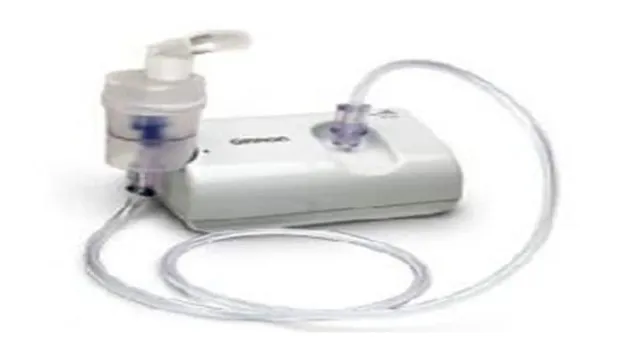
Factors Affecting Lifespan
When it comes to the lifespan of a nebulizer air compressor, there are several factors that come into play. Some of the most significant factors include the frequency of use, maintenance, and the quality of the machine itself. Overuse of the nebulizer air compressor can shorten its lifespan as it can put extra wear and tear on the motor and other components, leading to premature failure.
Proper maintenance is also crucial in extending the life of the machine. This includes regular cleaning and replacing of filters and other parts as needed. Another factor to consider is the quality of the nebulizer air compressor at the time of purchase.
High-end models typically have a longer lifespan and are built to withstand heavy use. Investing in a quality machine, coupled with proper maintenance and responsible usage, can greatly increase the lifespan of a nebulizer air compressor. After all, a nebulizer air compressor is an investment into one’s health and well-being.
Signs it’s Time to Replace Your Compressor
If you use a nebulizer for respiratory therapy, it’s important to understand when it’s time to replace your compressor. The frequency of replacement will depend on how often you use the nebulizer. As a general rule of thumb, it’s recommended to replace your nebulizer’s air compressor every 12 months or after 500 hours of use – whichever comes first.
However, there are a few signs that can indicate when it’s time for a replacement. If your compressor becomes excessively loud, produces different or unusual noises, or if it simply stops working altogether, it’s time to replace it. Additionally, if you experience any difficulty breathing during therapy sessions or if your medication seems less effective, a faulty compressor could be the culprit.
To ensure optimal performance of your nebulizer, make sure to replace the compressor as needed and follow any other recommended maintenance guidelines from the manufacturer.
Decreased Airflow or Pressure
If you’re experiencing decreased airflow or pressure from your compressed air system, it may be time to replace your compressor. This could be due to a number of factors such as wear and tear on the compressor itself, a clogged filter, or leaks in the system. When the airflow and pressure decreases, it can cause issues with your equipment and even lead to production delays.
Don’t let a faulty compressor slow you down. Instead, invest in a new compressor that you can rely on for consistently high performance. By replacing your compressor at the first sign of trouble, you can avoid costly repairs down the road and keep your operations running smoothly.
So if you’ve noticed a decrease in airflow or pressure, don’t wait to take action. Upgrade your compressor and get back to business as usual.
Excessive Noise or Vibration
When it comes to your compressor, excessive noise or vibration is never a good sign. If your compressor is making loud, strange noises or vibrating excessively, it’s time for a replacement. These are clear indicators that something is wrong with your compressor, and continuing to use it can lead to further damage or even a breakdown.
Pay attention to how your compressor normally operates and take note of any changes in noise or vibration levels. If you notice a sudden increase in either, it’s best to have your compressor inspected by a professional and consider replacing it if necessary. Remember, a functioning compressor is key to ensuring efficient and effective air flow, and replacing it in a timely manner can save you time and money in the long run.
Difficulty Starting or Maintaining Operation
If your compressor is having difficulty starting or maintaining operation, it’s a clear sign that it’s time for a replacement. A compressor that struggles to start or keep running can be a serious problem for any business, leading to decreased productivity and costly breakdowns. Symptoms of difficulty starting or maintaining operation may include unusual noise, excessive heat, or intermittent power.
If you notice any of these signs, don’t hesitate to have your compressor inspected by a professional and consider investing in a new, more reliable machine. By upgrading to a quality compressor, you’ll ensure that your operations run smoothly, and that you won’t be caught off guard by unexpected problems.
Maintaining Your Nebulizer Air Compressor
If you rely on a nebulizer air compressor to manage a respiratory condition, it’s crucial to keep your equipment in good condition. So, how often should you replace your nebulizer air compressor? The frequency of replacements can vary depending on use and maintenance. However, experts suggest replacing your nebulizer air compressor every five years.
Regular maintenance can increase the lifespan of your compressor and prevent malfunctions. Cleaning your compressor after every use and regularly checking for any worn-out parts can also help maintain its longevity. It’s crucial to replace any hoses or tubing that shows signs of wear and tear immediately to prevent contamination or leakage.
Overall, maintaining your nebulizer air compressor can ensure it functions optimally, thereby improving your breathing experience.
Regular Cleaning and Maintenance
Regular Cleaning and Maintenance Maintaining Your Nebulizer Air Compressor To ensure that your nebulizer air compressor functions effectively, it is essential to perform regular cleaning and maintenance. As a nebulizer air compressor is responsible for delivering medication to the patient’s lungs, it is vital to keep it clean and free from contamination to avoid infections. Regular cleaning of the nebulizer air compressor includes wiping the machine’s exterior with a damp cloth and disassembling the separate parts, such as the mask, tubing, and chamber, and washing them thoroughly with soapy water or using sterilizing solutions.
Maintenance involves checking the air compressor and all its parts to ensure they are functioning correctly and without any faults. Ensure that the machine’s filters are changed according to the manufacturer’s recommendation to avoid clogging, which can cause the air compressor to work harder and damage the motor. Regular cleaning and maintenance of the nebulizer air compressor guarantee its longevity, which is essential for better patient care and cost-effective use.
Replacing Parts as Needed
Maintaining your nebulizer air compressor is essential to ensure its proper functioning and longevity. One crucial aspect of maintenance is replacing parts as needed. Over time, the filters and tubing within the compressor can become clogged with debris and bacteria, reducing the effectiveness of the nebulizer.
Regularly checking and replacing the filters and tubing can prevent this issue and ensure that the compressor is providing the proper air pressure and flow rate. Additionally, checking the motor brushes and replacing them if necessary can prevent damage to the motor and extend the life of the compressor. By staying on top of maintenance tasks like these, you can ensure that your nebulizer air compressor lasts for years to come and remains an effective tool in your respiratory care routine.
Conclusion
When it comes to replacing your nebulizer air compressor, the answer isn’t set in stone. It all depends on how frequently you use your nebulizer, the condition of your compressor, and your personal hygiene habits. Although it’s recommended to replace your compressor every six months to a year, always keep an eye out for any signs of wear and tear.
Remember, when it comes to your respiratory health, it’s better to be safe than sorry. So take a deep breath and give your nebulizer the TLC it deserves.”
FAQs
What is a nebulizer air compressor?
A nebulizer air compressor is a device that converts liquid medicine into a mist that can be inhaled through a mask or mouthpiece.
How often should I replace my nebulizer air compressor?
It is recommended to replace your nebulizer air compressor every 5 years or sooner if it begins to show signs of wear and tear.
What are the signs that my nebulizer air compressor needs to be replaced?
Signs that your nebulizer air compressor needs to be replaced include a decrease in mist output, strange noises during operation, and visibly worn or damaged parts.
Can I clean my nebulizer air compressor to prolong its lifespan?
Yes, regular cleaning of your nebulizer air compressor can help prolong its lifespan. Follow manufacturer instructions and use only recommended cleaning solutions.
Is it necessary to replace the nebulizer air compressor filter?
Yes, it is necessary to replace the nebulizer air compressor filter every 6 months or sooner if it becomes clogged or discolored.
Do I need a prescription for a nebulizer air compressor?
Yes, you need a prescription from a healthcare provider to purchase a nebulizer air compressor.
Can I use my nebulizer air compressor for multiple people?
No, nebulizer air compressors should not be shared between multiple people to prevent the spread of infection. Each person should have their own personal nebulizer.
